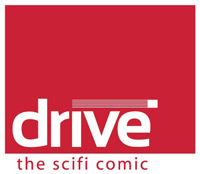I got a few dozen e-mails, today, saying “I noticed Dilbert stole your…idea.” And I realized that this was the perfect time to talk about originality and coincidence when it comes to writing jokes.
Dilbert did not steal my idea. The simple truth is, two very different cartoonists, writing at very different times and places, came up with similar jokes. It happens all the time. And it’s not theft, and it’s not malicious. It’s coincidence. In fact, it’s more than coincidence: It’s a shared response between two (very different) people who have observed or felt something very similar. In that sense, it’s a “coincidence” in a Jungian-collective-unconscious sort of way.
But the short version is: Coincidences do happen.
Let’s be clear about the strip in question, though, as it’s important: The Dilbert joke, while leaping off the same premise — faxes are ridiculous — has a completely different punchline. In joke-writing, this means everything. EVERYTHING. How many man-deserted-on-a-island cartoons have you seen in your life? How many “rabbi, priest and a minister” jokes have you heard? Premises are cheap, and are constantly applied and re-applied — it’s the punchline that’s central in humor.
But even there, even in the joke construction itself, two wholly different minds can arrive at the exact same punchline. In the brief time that I worked in editorial cartooning at the San Diego Union-Tribune, I saw it every…single…day as cartoons came in off the wire. And I have absolutely no doubt that Scott Adams, like myself, encountered a situation where someone asked for a fax, and immediately applied the ridiculousness of that action to his joke-writing. It’s what cartoonists do, day in and day out: Look for jokes in the world around us. And with enough cartoonists writing enough jokes, sooner or later two cartoonists write very similar strips.
I guess what I’m saying is, unless there’s a clear sign of maliciousness, we’d do well to assume a generosity of spirit… rather than rush in with a big fat “Gotcha!”
Like every cartoonist, I get accused of idea theft a couple times a year, sometimes with a hilarious reference like, “Hey, I heard a joke like that on my local, Australian radio morning show in 1985 — did you steal it?” (…And they’re being totally genuine about it!) But most of the time, it’s from folks who just like to write “J’accuse!” at you. Case in point: Someone recently wrote a snippy e-mail to me, accusing me of stealing from White Ninja’s take on glasses with Sheldon’s take on glasses. Their immediate assumption was that I — the scoundrel! — had stolen the idea. But when I pointed out that the Sheldon strip had actually run way back in 2005, the e-mailer went silent. I guess it was less fun if I *hadn’t* stolen the idea, and that two cartoonists had come up with it independently. Because that’s the central crux of my point: White Ninja didn’t steal the joke from me, either! Two creative people arrived at similar jokes, independently. It…happens…all…the…time.
Let’s step back and take a broader view of entertainment, for a minute:
We are moving from a world of mass media, where we all collectively perused the same 300-500 sources of entertainment, to a world of niche-, sometimes micro-, entertainments. There are tens of thousands of webcomics alone, and probably an equal number of humor blogs, humor sites, etc., etc. No one can keep track of them all, or even have an awareness of them all. But here’s one thing I can assure you of: Among all those variegated entertainments… creative coincidence is going to happen more and more and more and more. Scatter enough balls across a pool table, and more and more of them are going to bonk.
But as I said above, unless we can see genuine malicious intent, we’d all do well to assume a generosity of spirt when we encounter two folks who have “bonked” on the same idea. Coincidences happen.



